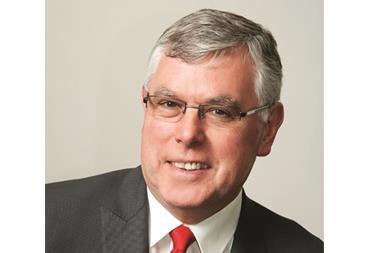Businesses urged to hire executive risk leaders to spearhead risk strategies at board level

Corporates should appoint an executive risk leader to advise board level strategy, according to Airmic chief executive John Hurrell.
Hurrell’s comments came in response to a new report published this week, Tomorrow’s Risk Leadership: delivering risk resilience and business performance, developed by global business think tank Tomorrow’s Company in collaboration with Airmic and Good Governance Forum members Chartered Institute of Management Accountants, InterContinental Hotels Group (IHG), Korn Ferry, PwC and Zurich.
The report suggests that boards are struggling to manage today’s increasingly complex and dynamic risk landscape and that this shortcoming could result in loss of value and eroding resilience in times of crisis for a company.
Hurrell (pictured) says that the purpose of a risk leader, who reports directly into the board, is to provide a strategic analysis of the company’s risk exposures in relation to the firm’s business objectives.
“At the strategic level, boards are not trying to fix a problem for today,” he says. “They are trying to fix a problem that will survive what they think the world will look like in three to five years from now.
“In this report, we recommend that companies consider appointing an executive voice of risk to give a corporate-wide view and help boards cut through the vast amount of risk information and focus on the most important and strategic risks.”
The report challenges firms and business leaders to consider whether the risk leadership in their organisation is sufficient to meet the demands of today’s fast-paced and interconnected world.
“Over time, we will see more and more risk professionals stepping into these more strategic roles and for those who wish to take their career in that direction, this is an extremely exciting time.”
- John Hurrell
Hurrell says: “Although companies are usually experts at managing their core risks, all too often the management of risk remains a siloed operation, detached from strategy.”
Tomorrow’s risk leaders
For risk managers, the report provides an insight into the future of the risk function and Hurrell says risk professionals will increasingly move into strategic positions, liaising with the board on corporate strategy and risk management issues.
He adds: “[The report] gives us a good idea of where the risk profession is heading. Over time, we will see more and more risk professionals stepping into these more strategic roles and for those who wish to take their career in that direction, this is an extremely exciting time.”
John Ludlow, IHG senior vice-president risk management and Airmic junior chair, says risk professionals must have leadership qualities if they are to succeed and progress into strategic positions within their company.
“A lot of risk professionals are technically skilled but [businesses] need risk leaders who can collaborate across the business and lead more diverse teams. As the [risk management] rises up the corporate ladder, there will be a need for individuals who can also navigate corporate politics.”
Furthermore, Ludlow says increasing reputational risk on corporate activity means decisions made by business leaders will be under greater scrutiny for their ethical merits.
“Business leaders must become more open and willing to be ‘servant-leaders’, more aware of the stakeholders that they are serving and doing the right thing for everybody, which is often a difficult balance.
“I think risk management has a great role to play in helping business become more responsible, ethically mature and long-term in their thinking,” Ludlow said.
Hurrell adds that risk professionals must develop their business acumen and have a broad understanding of where the risk function fits into the corporate strategy, if they wish to progress into strategic positions within their company. “Risk professionals, whether they are leaders today or are new in their careers, will increasingly need broader business awareness and to be mindful of how risk decisions impact and are impacted by corporate strategy.”




















No comments yet